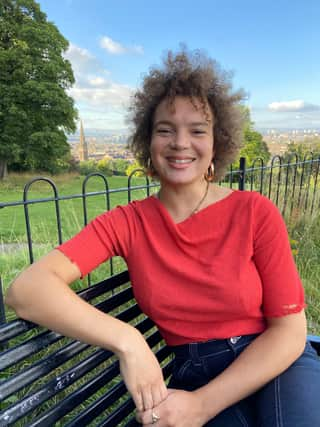One of earliest Gaelic Dictionaries was published using donations from slave owners


The 1828 dictionary was published by the Highland Society of Scotland with funds raised from Scots around the world, including plantation owners in then Berbice and Demerara.
The dictionary was the first of its kind to get underway, but was beaten into publication by another, which was printed in 1825, it is understood.
Advertisement
Hide AdAdvertisement
Hide AdOne of the largest donors was William Munro, owner of Novar Estate in Demerara and at least 160 slaves.
He donated £100 for the society's dictionary in 1822, the equivalent of just under £13,000 today.
The revelation comes as part of a BBC ALBA documentary exploring the links between Africa, Scotland and the Highlands.
Musician Cass Ezeji, who presents Trusadh: Afro-Gàidheil - Afro-Gaels, said: "I was so shocked to hear that the first Gaelic dictionary was founded by slave traders.
“Even for me personally, I also feel unsure about where I fit in with that history.
"It is interesting for me how one community who was oppressed then went on to do the same to another oppressed community.
"It is vital that we speak about this in our community."
Cass made the discovery after interviewing Dr David Alston, author of newly-published Slaves and Highlanders, Silenced Histories of Scotland and the Caribbean.
Cass, from Glasgow, attended the city's first Gaelic primary school, but said she always felt 'conflicted about her Gaelic-speaking identity and her African heritage.
Advertisement
Hide AdAdvertisement
Hide AdIn the programme Cass uncovers the historical ties between the Gaels and the slave trade.
She said: "When we consider Scotland and slavery, we rarely hear about the connection with the Gaels.
"It's vital that we speak about this in our community because we've always seen ourselves as the heroes and the victims but not the perpetrators.
"It's a painful history but we were part of it."
Other donors to the dictionary included James Fraser of Belladrum, whose father was key to the involvement of Highland Scots in the plantations of Berbice, according to Dr Alston.
James Jnr, along with other Highlanders, bought up several parcels of land in Berbice, which were then operated as plantations.
James and his two brothers owned several of them, with the Highlander finally returning to Scotland in 1821.
By then, his only estate in Berbice was plantation Golden Fleece, where 374 slaves were kept.
The documentary also explores subscriptions paid to a fundraiser for 'Highland destitution' in 1837 by former slaves.
Advertisement
Hide AdAdvertisement
Hide AdBad weather and poor harvests in 1835 and 1836 led to food shortages with committees formed in Edinburgh, Glasgow and London to raise subscription from the rest of Great Britain, Ireland and the colonies.
Remarkably, donors included former slaves who served as indentured servants following abolition.
Funds were used to buy seed, food and clothing with analysis by Dr Alston showing donations from apprentice labourers from the plantation industry in Demerara.
Dr Alston said: "This is at the end of slavery but former slaves were bound to unpaid work to their masters for five years.
"They are in between slavery and freedom.
"So you have former black slaves sending money for destitute Highlanders."